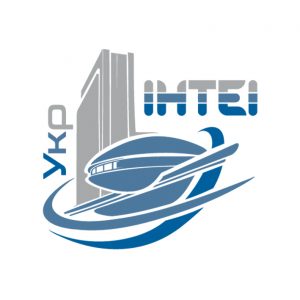http://doi.org/10.35668/2520-6524-2025-2-07
Boiko P. M. — PhD in Engineering, Associate Professor, Department of Biotechnology of Fermentation and Winemaking Products, National University оf Food Technologies, 68, Volodymyrska Str., Kyiv, Ukraine, 01601; +38 (050) 311-70-85; boykopm@bigmir.net; ORCID: 0009-0008-9445-7445
Bondar M. V. — PhD in Engineering, Associate Professor, Department of Biotechnology of Fermentation and Winemaking Products, National University оf Food Technologies, 68, Volodymyrska Str., Kyiv, Ukraine, 01601; +38 (095) 840-38-38; bondnik@i.ua; ORCID: 0000-0002-5775-006X
Babych I. M. — PhD in Engineering, Associate Professor, Department of Biotechnology of Fermentation and Winemaking Products, National University оf Food Technologies, 68, Volodymyrska Str., Kyiv, Ukraine, 01601; +38 (050) 561-36-94; 5613694@ukr.net; ORCID: 0000-0002-3058-3062
Prybylskyi V. L. — D. Sc. in Engineering, Professor, Department of Biotechnology of Fermentation and Winemaking Products, National University оf Food Technologies, 68, Volodymyrska Str., Kyiv, Ukraine, 01601; +38 (095) 536-87-59; undihp63@ukr.net; ORCID: 0000-0003-4126-6721
Dulka O. S. — PhD in Engineering, Associate Professor, Department of hotel and restaurant affairs, National University оf Food Technologies, 68, Volodymyrska Str., Kyiv, Ukraine, 01601; +38 (097) 940-68-29; olga.ds210791@gmail.com; ORCID: 0000-0002-9897-5998
ARTIFICIAL INTELLIGENCE AND INTELLECTUAL PROPERTY
Abstract. The article examines the importance of studying issues related to the development of artificial intelligence. The prerequisites for the emergence and features of the development of artificial intelligence are summarized. The analysis of the application of artificial intelligence in domestic and international communications is carried out. The prospects for the development of artificial intelligence are outlined, the main directions of its application, advantages and opportunities in the near future are described. Artificial intelligence, unlike artificial intelligence, is characterized by the absence of auxiliary, conscious responsibility for making the final decision. Therefore, it is a person with his mind and his own intelligence who should make final decisions.
Information is provided on the prospects for the use of artificial intelligence in various areas of intellectual activity. The role of artificial intelligence in the legal protection of intellectual property objects is determined. Recommendations are provided for developers, copyright holders and users of intellectual property objects regarding the use of artificial intelligence. Various options for legal protection are considered.
The significance of artificial intelligence in the legal protection of intellectual property, in particular the right of a special kind to a non-original object created by a generative artificial intelligence system, is determined.
It outlines ways in which artificial intelligence can be used for the public good when intellectual property rights have expired. It describes various initiatives that are used by generative artificial intelligence systems and provide significant opportunities for their users, in particular, Copyright Shield.
Information is provided about blockchain, content fingerprinting technologies, digital rights management, API integration and architecture, hashing, technical limitations of web scraping and parsing, as components of the spread of artificial intelligence in society.
Keywords: artificial intelligence, intellectual property, object, non-original object, subject, artificial intelligence system, special kind of law.
REFERENCES
- (2022). Pro avtorske pravo i sumizhni prava: Zakon Ukrainy vid 01.12.2022 № 2811-IX [On copyright and related rights: Law of Ukraine dated 01.12.2022 No. 2811-IX]. Retrieved from: https://zakon.rada.gov.ua/laws/card/2811-20. [in Ukr.].
- (2024). Kodeksy Ukrainy: Ofitsiinyi zbirnyk [Codes of Ukraine: Official Collection]. Kyiv, 1200 p. [in Ukr.].
- (2024). Rekomendatsii shchodo vidpovidalnoho vykorystannia ShI: pytannia prava intelektualnoi vlasnosti [Recommendations for the responsible use of AI: intellectual property rights issues]. 51 p. Retrieved from:https://me.gov.ua/view/2d134af9-482d-458b-a43d-67b36742ce95 [in Ukr.].
- (2024). Zakonodavstvo Ukrainy u sferi intelektualnoi vlasnosti: zbirnyk normatyvno-pravovykh aktiv [Legislation of Ukraine in the field of intellectual property: collection of regulatory legal acts]. Kyiv, 500 p. [in Ukr.].
- Iefremov, M. F., & Yefremov, Yu. M. (2008). Shtuchnyi intelekt, istoriia ta perspektyvy rozvytku [Artificial Intelligence, History and Development Prospects]. Visnyk ZhDTU [Bulletin of ZhDTU], 2(45), 123-127. Retrieved from: http://vtn.ztu.edu.ua/article/view/81625/79214 [in Ukr.].
- Poniattia shtuchnoho intelektu [The concept of artificial intelligence]. Megalib.com.ua. Retrieved from: http://megalib.com.ua/content/1956_71_Ponyattya_shtychnogo_intelekty.html [in Ukr.].
- (1995). Bernska konventsiia pro okhoronu literaturnykh i khudozhnikh tvoriv [Berne Convention for the Protection of Literary and Artistic Works]. Dokument 995_051, 31.05.1995. Retrieved from: https://zakon.rada.gov.ua/laws/show/995_051#Text [in Ukr.].

